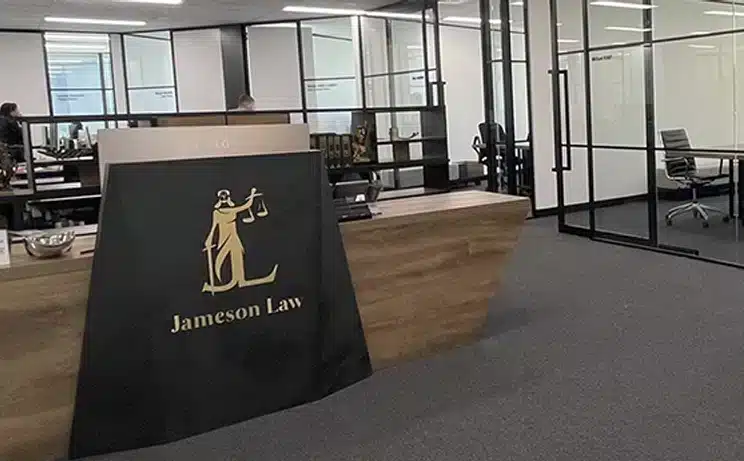
CLIENT REVIEWS
WE GET IT!
How do we get 5 star reviews everywhere? Perfection is our bottom line.
Award-winning Sydney Law Firm
We have won several client service excellence and leading law firm awards every year up to and including 2026.
Proven Track Record
40+ years of combined experience delivering exceptional outcomes across various legal matters.
5 Star Reviews Everywhere
We’re in it to win it and we fight hard for our clients. That’s why anywhere you look you will find 5 star reviews.
Easy Finance Options
Get solid advice and representation today, and pay the bill later with affordable fortnightly payments.
Award-winning Sydney Law Firm
We have won several client service excellence and leading law firm awards every year up to and including 2026.
Proven Track Record
40+ years of combined experience delivering exceptional outcomes across various legal matters.
5 Star Reviews Everywhere
We’re in it to win it and we fight hard for our clients. That’s why anywhere you look you will find 5 star reviews.
Easy Finance
Options
Get solid advice and representation today, and pay the bill later with affordable fortnightly payments.

What our customers say
Leave us review

How satisfied are you with the service you received?*
0 / 5
![]()
JAMESON LAW
Parramatta, NSW, 2150
5.0 stars
Reviews:
We’re in it to win it
Back to back winners of the Local Business Awards and multiple niche awards across the legal services sector.


Expert sydney lawyers
We are one, but we are many… We have dedicated senior solicitors managing each one of our legal departments. This allows us to take a multi-faceted approach in offering expert advice across several areas of law.
Why choose us
When success is critical you need an experienced solicitor constantly following up and running your case. We have the resources, business processes, legal precedents and the most advanced systems to ensure your case is on point.
High profile cases featured in:


Latest news
-
View over 500 articlesView over 500 articles
Latest insights
-
Explore +300 insightsExplore +300 insights
We're here to help
Our mission is to ensure our client matters are resolved successfully every time. Success to us does not simply involve winning, but moreover ensuring we take the most feasible, economic and stress-free path to help our clients achieve their goals. We fight hard for our clients, and always go by the motto: we’re in it to win it.

WE'RE IN IT TO WIN IT
Book your consultation
Call us now on (02) 8806 0866 or fill out the form below
This form submission is encrypted and secured to ensure your information remains confidential.
Our Offices


Parramatta CBD - Head Office
- (02) 8806 0866
- 0488 817 882
- 02 9052 0840
- info@jamesonlaw.com.au
- Suite 301, 67-69 Philip St Parramatta NSW 2150
Sydney CBD - Practice Office
- 02-8806-0866
- 0488 817 882
- 02 9052 0840
- info@jamesonlaw.com.au
- Tower One Barangaroo International Towers Level 35, 100 Barangaroo Ave Sydney NSW 2000
Blacktown CBD - Practice Office
- (02) 8806 0866
- 0488 817 882
- 02 9052 0840
- info@jamesonlaw.com.au
-
Level 3 81 Flushcombe Road, Blacktown NSW 2148
(By Appointment Only)

Liverpool CBD - Practice Office
- (02) 8806 0866
- 0488 817 882
- 02 9052 0840
- info@jamesonlaw.com.au
-
Level 2, 215-219 George Street, Liverpool NSW 2170
(By Appointment Only)

Bankstown CBD - Practice Office
- (02) 8806 0866
- 0488 817 882
- 02 9052 0840
- info@jamesonlaw.com.au
-
23 Restwell Street, Bankstown NSW 2200
(By Appointment Only)


Court Houses We Frequent
Local Courts
Balmain Local Court
- 1300 679 272
- local-court-burwood@justice.nsw.gov.au
- 368 Darling Street, Balmain NSW 2041
Registry: Monday to Friday, 9:00am to 4:30pm
Bankstown Local Court
- 1300 679 272
- (02) 9722 6060
- PO Box 71 BANKSTOWN NSW 2200
- local-court-bankstown@justice.nsw.gov.au
- Cnr Chapel Road and The Mall BANKSTOWN NSW 2200
Court Operating Hours: 9:30am-4:30pm
Blacktown Local Court
- 1300 679 272
- (02) 9672 2666
- PO Box 217 BLACKTOWN NSW 2148
- local-court-blacktown@justice.nsw.gov.au
- 1 Kildare Road Blacktown NSW 2148
Registry Hours: 9:00 – 4:30
Telephone Hours: 8:30 -4:30
Days open: Mon-Fri
Burwood Local Court
- 1300 679 272
- (02) 9744 4144
- PO Box 235 BURWOOD NSW 1805
- local-court-burwood@justice.nsw.gov.au
- 7-9 Belmore Street BURWOOD NSW 2134
Registry Hours: 9:00 – 4:30
Telephone Hours: 8:30 – 4:30
Days open: Mon – Fri
Campbell Local Court
- 1300 679 272
- (02) 9821 7888
- PO Box 3435 LIVERPOOL WESTFIELDS NSW 2170
- local-court-campbelltown@justice.nsw.gov.au
- 150 George Street LIVERPOOL NSW 2170
Registry Hours: 9:00 – 4:30
Telephone Hours: 8:30 – 4:30
Days open: Mon – Fri
Central Local Court
- 1300 679 272
- (02) 4223 3633
- PO Box 5395 WOLLONGONG NSW 2500
- local-court-wollongong@justice.nsw.gov.au
- Cnr Market and Church Streets WOLLONGONG NSW 2500
Registry Hours: 9:00 – 1:00 and 2:00 – 4:30
Telephone Hours: 8:30 – 4:30
Downing Local Court
- 1300 679 272
- (02) 4223 3633
- PO Box 5395 WOLLONGONG NSW 2500
- dclc@justice.nsw.gov.au
- 143-147 Liverpool Street, Sydney NSW 2000
- Nearest Train Station: Museum Station (Liverpool Street entrance is directly opposite)
- Levels: Local Court matters are heard on levels 4 and 5.
- Public Transport: Well-served by buses and trains, with easy access to nearby bus stops and Museum Station.
- Parking: Limited street parking is available, and there are several public parking garages nearby.
Registry Hours: 9:00 – 1:00 and 2:00 – 4:30
Telephone Hours: 8:30 – 4:30
Wollongong Local Court
- 1300 679 272
- (02) 4223 3633
- PO Box 5395 WOLLONGONG NSW 2500
- local-court-wollongong@justice.nsw.gov.au
- Cnr Market and Church Streets WOLLONGONG NSW 2500
Registry Hours: 9:00 – 1:00 and 2:00 – 4:30
Telephone Hours: 8:30 – 4:30
Fairfield Local Court
- 1300 679 272
- (02) 4223 3633
- PO Box 5395 WOLLONGONG NSW 2500
- local-court-wollongong@justice.nsw.gov.au
- Cnr Spencer St & Court Rd, Fairfield NSW 2165
Registry Hours: 9:00 – 1:00 and 2:00 – 4:30
Telephone Hours: 8:30 – 4:30
Hornsby Local Court
- 1300 679 272
- (02) 9847 9955
- PO Box 96 HORNSBY NSW 1630
- local-court-hornsby@justice.nsw.gov.au
- 294 Peats Ferry Rd HORNSBY NSW 2077
Registry Hours: 9:00 – 1:00 and 2:00 – 4:30
Telephone Hours: 8:30 – 4:30
Liverpool Local Court
- 1300 679 272
- (02) 9722 6060
- PO Box 71 BANKSTOWN NSW 2200
- local-court-bankstown@justice.nsw.gov.au
- Cnr Chapel Road and The Mall BANKSTOWN NSW 2200
Registry Hours: 9:00 – 1:00 and 2:00 – 4:30
Telephone Hours: 8:30 – 4:30
Manly Local Court
- 1300 679 272
- (02) 9722 6060
- PO Box 71 BANKSTOWN NSW 2200
- local-court-bankstown@justice.nsw.gov.au
- Cnr Chapel Road and The Mall BANKSTOWN NSW 2200
Registry Hours: 9:00 – 1:00 and 2:00 – 4:30
Telephone Hours: 8:30 – 4:30
Newtown Local Court
- 1300 679 272
- (02) 9722 6060
- PO Box 71 BANKSTOWN NSW 2200
- local-court-bankstown@justice.nsw.gov.au
- Cnr Chapel Road and The Mall BANKSTOWN NSW 2200
Registry Hours: 9:00 – 1:00 and 2:00 – 4:30
Telephone Hours: 8:30 – 4:30
Parramatta Local Court
- 1300 679 272
- (02) 4223 3633
- PO Box 92 Parramatta NSW 2150, Australia
- local-court-parramatta@justice.nsw.gov.au
- 12 George Street Parramatta NSW 2150, Australia
Registry Hours: 9:00 – 1:00 and 2:00 – 4:30
Telephone Hours: 8:30 – 4:30
Penrith Local Court
- 1300 679 272
- (02) 9722 6060
- PO Box 71 BANKSTOWN NSW 2200
- local-court-bankstown@justice.nsw.gov.au
- Cnr Chapel Road and The Mall BANKSTOWN NSW 2200
Registry Hours: 9:00 – 1:00 and 2:00 – 4:30
Telephone Hours: 8:30 – 4:30
Sutherland Local Court
- 1300 679 272
- PO Box 37, Sutherland 2232
- local-court-sutherland@justice.nsw.gov.au
- Cnr Flora and Belmont Street, Sutherland NSW 2232
Registry Hours: 9:00 – 1:00 and 2:00 – 4:30
Telephone Hours: 8:30 – 4:30
Waverley Local Court
- 1300 679 272
- (02) 9722 6060
- PO Box 71 BANKSTOWN NSW 2200
- local-court-bankstown@justice.nsw.gov.au
- Cnr Chapel Road and The Mall BANKSTOWN NSW 2200
Registry Hours: 9:00 – 1:00 and 2:00 – 4:30
Telephone Hours: 8:30 – 4:30
Windsor Local Court
- 1300 679 272
- (02) 9722 6060
- PO Box 71 BANKSTOWN NSW 2200
- local-court-bankstown@justice.nsw.gov.au
- Cnr Chapel Road and The Mall BANKSTOWN NSW 2200
Registry Hours: 9:00 – 1:00 and 2:00 – 4:30
Telephone Hours: 8:30 – 4:30
Wollongong Local Court
- 1300 679 272
- (02) 9722 6060
- PO Box 71 BANKSTOWN NSW 2200
- local-court-bankstown@justice.nsw.gov.au
- Cnr Chapel Road and The Mall BANKSTOWN NSW 2200
Registry Hours: 9:00 – 1:00 and 2:00 – 4:30
Telephone Hours: 8:30 – 4:30
District Courts
Downing Centre District Court
- 1300 679 272
- PO Box 71 BANKSTOWN NSW 2200
- downingcentredc@justice.nsw.gov.au
- 143-147 Liverpool Street, Sydney NSW 2000
Registry Hours: 9:00 – 4:30
Telephone Hours: 8:30 – 4:30
Days open: Mon – Fri
Parramatta District Court
- (02) 8688 7777
- local-court-bankstown@justice.nsw.gov.au
- 12 George Street, Parramatta NSW 2150
Registry Hours: 9:00 – 4:30
Days open: Mon-Fri
Penrith District Court
- 1300 679 272
- local-court-penrith@justice.nsw.gov.au
- 64-72 Henry Street, Penrith NSW 2750
Registry Hours: 9:00 – 4:30
Days open: Mon-Fri
Campbelltown District Court
- 1300 679 272
- local-court-campbelltown@justice.nsw.gov.au
- Railway Street, Campbelltown NSW 2560
Registry Hours: 9:00 – 4:30
Days open: Mon – Fri
Liverpool District Court
- 1300 679 272
- local-court-liverpool@justice.nsw.gov.au
- 150 George Street, Liverpool NSW 2170
Registry Hours: 9:00 – 4:30
Days open: Mon – Fri
Wollongong District Court
- 1300 679 272
- local-court-wollongong@justice.nsw.gov.au
- 97-99 Market Street, Wollongong NSW 2500
Registry Hours: 9:00 – 1:00 and 2:00 – 4:30
Telephone Hours: 8:30 – 4:30
Supreme Courts
Supreme Court New South Wales
- 1300 679 272
- (02) 9230 8025
- (02) 9230 8233
- GPO Box 3 Sydney NSW 2001 Australia
- sc.enquiries@justice.nsw.gov.au
- Law Courts Building 184 Phillip Street Sydney NSW 2000
Registry Hours: 9:00 AM – 4:30 PM
Telephone Hours: 8:30 AM – 4:30 PM
Days Open: Monday to Friday
Federal Court
Federal Circuit and Family Court of Australia
- 1300 352 000
- (02) 9230 8000
- GPO Box 9991, Sydney NSW
- enquiries@fcfcoa.gov.au
- Lionel Bowen, Building, 97/99 Goulburn St, Sydney NSW 2001
Registry Hours: 9:00 AM – 4:30 PM
Telephone Hours: 8:30 AM – 5:00 PM
Days Open: Monday to Friday
Federal Court
- 1300 720 980
- (02) 9230 8020
- GPO Box 9991, Sydney NSW
- enquiries@fedcourt.gov.au
- 97-99 Goulburn St in the heart of the Sydney CBD
Monday to Friday, 8:30 AM – 4:30 PM
High Court
- (02) 6270 6811
- (02) 6270 6868
- Parkes Place, Canberra ACT 2600
- enquiries@hcourt.gov.au
- Parkes Place, Canberra ACT 2600
Monday to Friday, 8:30 AM – 5:00 PM
Specialised Courts
Children’s Court of New South Wales
- 1300 679 272
- (02) 9722 6060
- Cnr Chapel Road and The Mall BANKSTOWN NSW 2200
- PO Box 71 BANKSTOWN NSW 2200
- sc.enquiries@justice.nsw.gov.au
Registry Hours: 9:00 AM – 4:30 PM
Telephone Hours: 8:30 AM – 4:30 PM
Days Open: Monday to Friday
Coroner’s Court New South Wales
- 1300 679 272
- (02) 9230 8025
- (02) 9230 8233
- GPO Box 3 Sydney NSW 2001 Australia
- sc.enquiries@justice.nsw.gov.au
- Law Courts Building 184 Phillip Street Sydney NSW 2000
Registry Hours: 9:00 AM – 4:30 PM
Telephone Hours: 8:30 AM – 4:30 PM
Days Open: Monday to Friday
Industrial Relations Commission of New South Wales
- 1300 679 272
- (02) 9230 8025
- (02) 9230 8233
- GPO Box 3 Sydney NSW 2001 Australia
- sc.enquiries@justice.nsw.gov.au
- Law Courts Building 184 Phillip Street Sydney NSW 2000
Registry Hours: 9:00 AM – 4:30 PM
Telephone Hours: 8:30 AM – 4:30 PM
Days Open: Monday to Friday
Land and Environment Court of New South Wales
- 1300 679 272
- (02) 9230 8025
- (02) 9230 8233
- GPO Box 3 Sydney NSW 2001 Australia
- sc.enquiries@justice.nsw.gov.au
- Law Courts Building 184 Phillip Street Sydney NSW 2000
Registry Hours: 9:00 AM – 4:30 PM
Telephone Hours: 8:30 AM – 4:30 PM
Days Open: Monday to Friday














